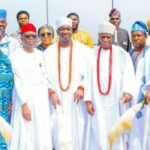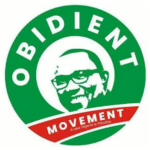The Financial Reporting Council of Nigeria (FRC) has reaffirmed its dedication to partnering with civil society organisations (CSOs) to enhance transparency, accountability, and adherence to financial reporting, corporate governance, and sustainability standards throughout Nigeria.
During a one-day capacity-building workshop held in Abuja and organised by the New Era for Sustainability Leadership and Accountability Initiative (NESLAI), Mr. Titus Osawe, the FRC’s coordinating director representing the executive secretary, Dr. Rabiu Olowo, emphasized the council’s appreciation for alliances with groups that share its vision.
“We consider this collaboration invaluable because we recognize a group genuinely invested in our objectives,” Osawe remarked. “At the Financial Reporting Council, our mandate includes overseeing compliance with financial reporting standards, corporate governance, and sustainability frameworks. When an organisation like NESLAI is committed to advancing these issues through advocacy, we are eager to work together.”
Osawe highlighted the crucial contribution of civil society in engaging stakeholders and building capacity, pointing out that CSOs played a significant role in shaping the 2018 Nigerian Code of Corporate Governance for the private sector.
He further disclosed that CSOs are actively participating in the formulation of a governance code tailored for not-for-profit organisations, which is anticipated to be completed within the year.
In his address, Comrade Edwin Oluwafemi, executive director of the Network for Legislative Strengthening and Accountability Initiatives (NELSAI), stressed the indispensable role of civil society groups within Nigeria’s accountability ecosystem.
“Your position as intermediaries between government, private entities, and communities uniquely equips you to influence adherence to financial reporting standards across sectors,” he stated.
Referencing the FRC Act of 2011 and the Companies and Allied Matters Act (CAMA) 2020, Oluwafemi reminded attendees that transparency and sound governance are statutory obligations rather than optional practices.
“This training aims not only to build the capacity of CSOs but also to empower them to exemplify the highest standards of financial reporting within their own organisations,” he added.
Additionally, Comrade Richard Otitoleke, programme coordinator, explained that the initiative seeks to provide reputable civil society actors with the technical expertise necessary to monitor compliance and hold institutions accountable.
“The goal is to ensure that both private and public sector organisations align with international best practices,” he noted. “Civil society must possess the intellectual and technical skills to effectively oversee financial reporting.”
Workshop participants praised the training as both timely and transformative. Comrade Opanachi Jacob, national coordinator of the Africa Poverty Alleviation Initiative, remarked that the session effectively addressed vital knowledge gaps.
“It enhances our ability to evaluate financial reporting through the lens of both global and local standards, particularly in scrutinizing procurement activities. This empowers CSOs to hold institutions accountable and curb the leakages that often enable corruption,” he explained.
Chief Ogakwu Dominic, representing the Civil Society Groups for Good Governance (CSGGG), underscored the wider governance impact of the programme.
“This effort is laudable because it reminds us that accountability extends beyond government bodies to include private enterprises and individuals,” he affirmed.
“Every publicly traded company must answer to Nigerians. Corporate governance is critical. Ownership does not exempt a business from public scrutiny.”

















